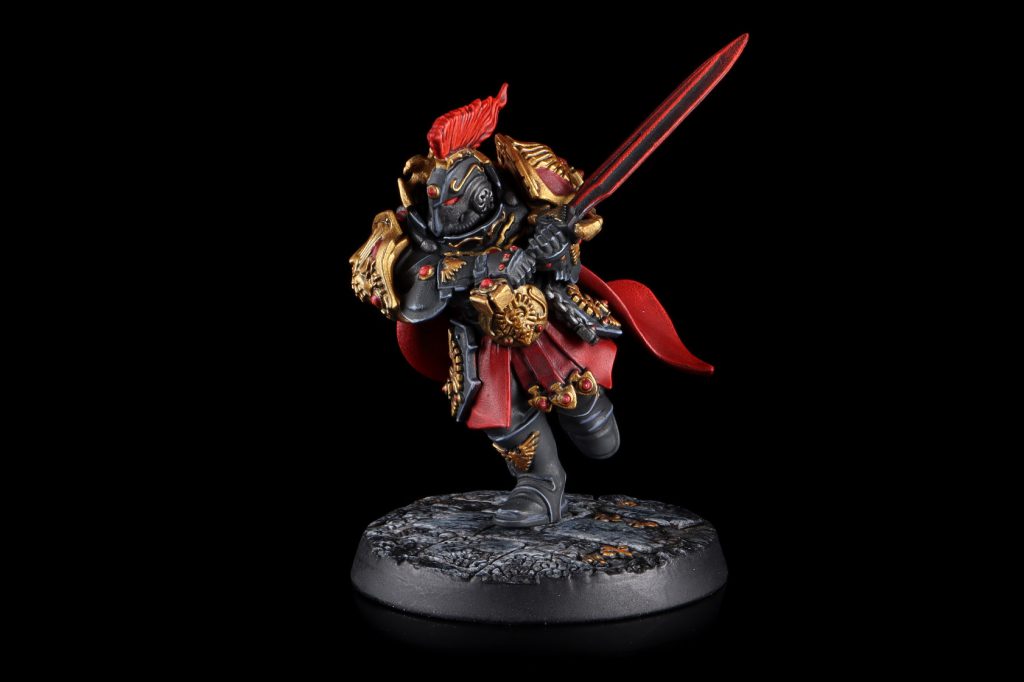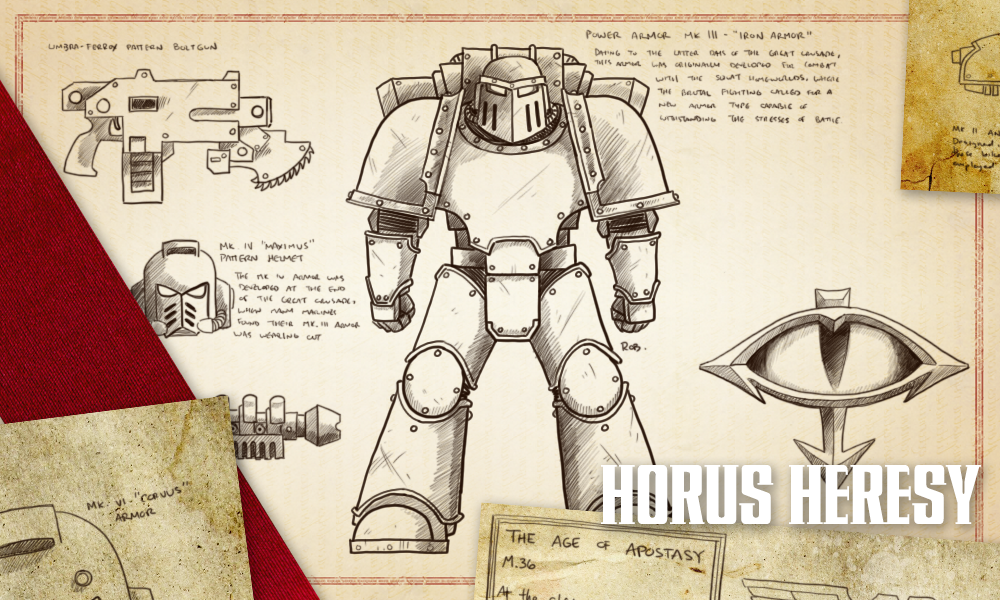Welcome to Horus Heresy Tactica, our series that provides a deep dive in a specific mechanic, interaction or aspect of play in Warhammer: the Horus Heresy.
Welcome back to the third and final part of our deep dive into the assault phase, where we look at the somewhat baffling world of challenges. Previously we’ve looked at charging and the general process of resolving fights.
This is Very Challenging
We approach our final major wrinkle in the entire affair: challenges. Challenges are duels fought between characters in units and can be a surprisingly tactical affair. The active player gets an opportunity to declare a challenge (if they and their opponent both have at least one Character in their respective units), and if they choose not to their opponent gets the opportunity. You pick what character you’re challenging with when you declare it and then your opponent either chooses to accept with a Character of their choice, or decline. If they decline the character goes and hides at the back, otherwise you switch models in the unit around to put the two characters as close to each other as possible and then assume they’re in base contact for the right of the combat.
So should you challenge? And should you accept, and if you do, with what model?

To understand this we must understand what challenges actually involve. The two models keep fighting in initiative steps the same as everyone else, but their attacks are sectioned off. They always use the weapon skill and toughness of their opponent to generate their wound pool and the wounds are assigned only to each other from the pool unless one of them is dead. At this point they can assign the wounds to other models in the unit, but those models never actually suffer the wounds and aren’t removed as casualties you just count those wounds for the purposes of assault results.
On the other hand if one of the units fighting outside the duel kills all their enemies (or had no enemies in the first place) and still has wounds to assign they can absolutely spill into the duel. This means that duels are oddly vulnerable places to be if one unit outside the duel is much more powerful than the other, and oddly insulating in terms of damage done by a powerful duellist to the rest of the enemy unit.
This is why the Chosen Warrior rule (which lets normal models accept duels as if they were characters) is so interesting and important, and units with these and those where all models are Characters have some unique options when it comes to duels.
So, should you challenge? And if challenged, should you accept and with who?
The answer is, broadly, you should challenge if:
- you think an enemy character is going to kill more than the character you’re challenging with
- your priority is to kill a specific enemy character in the opposing unit
However if challenged it’s almost always in your interest to accept unless there is exactly one character in the unit, that character is valuable for non-combat reasons and will definitely lose a duel, and you have a lot of the rest of the unit to absorb the hits. This is because if you refuse a challenge your opponent picks a character in your unit and then they don’t fight at all and also you can’t use their Leadership. This sucks, and so is almost always an error.

Let’s imagine a situation to game this out:
Player A has a Centurion and a unit of Despoilers which has charged a Praetor and a despoiler squad controlled by Player B. Player A is the active player.
If neither player issues a challenge, then the Praetor is going to scythe through the despoilers, and the Centurion is going to do a decent amount of damage but not as much as the Praetor.
If Player A has the Centurion challenge then either the Praetor will accept, or the Despoiler Sergeant will. If the Praetor accepts then the Centurion is probably dead, but the rest of the unit is insulated from any spill-over attacks to some extent. If the Sergeant accepts then the Centurion will almost certainly kill him, but the Praetor gets to attack freely and the Centurion’s excess attacks can’t easily spill over. Player B shouldn’t refuse the challenge because if they do then Player A will definitely pick the Praetor and the combat swings hard in their favour.
If Player A instead has the Sergeant challenge then Player B can either accept with the Praetor or with the Despoiler Sergeant. If the Praetor accepts Player A’s Sergeant is dead but Player B has made a bad error because the spill over won’t kill other models. If they accept with their Sergeant however, the two sergeants fight on equal terms and the Praetor and Centurion fight with the rest of the unit inflicting casualties proportionate to their skill. Again Player B shouldn’t refuse the challenge because the Praetor will be taken out of the combat and Player A gains a huge advantage.
If Player A chooses not to challenge, the option goes over to Player B. They are now faced with a very similar set of choices – if they challenge with the Praetor Player A will almost certainly accept with the Sergeant, etc.
The conclusion is: Player A should challenge with the Sergeant, and Player B should accept with the Sergeant. If the combat continues into a second turn and one of the two Sergeants is dead, then things get more interesting. Player B is now the active player. If their Sergeant is still alive they should absolutely challenge with him to lock the Centurion out of fighting. If they’re not, then the Praetor might as well challenge knowing full well the Sergeant will accept, because otherwise the challenge will be issued by Player A.
Of course all of this goes out of the window if you have a character who must challenge or who gets certain bonuses in a challenge. Champions in particular must challenge, but while they’re in a challenge the rest of the unit gets Fearless, so that’s an absolutely good trade off.
Conclusion
Challenges are weird. Wounds spill into them, but not out (except for assault results). Your choices in who should challenge and who should accept are often very clear and unambiguous, but they do add an extra level of complexity on top of the normal rules you need to consider.


